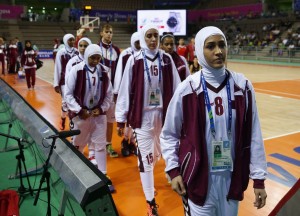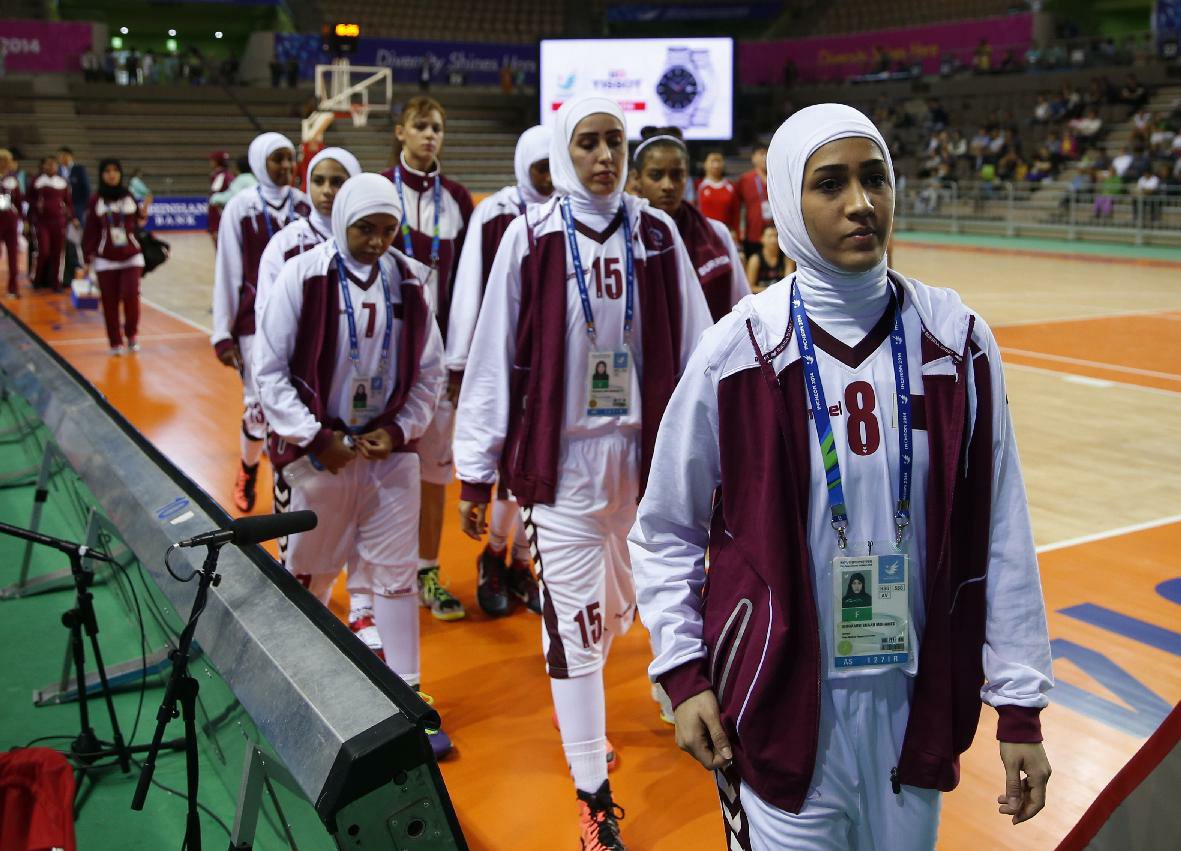Widgetized Section
Go to Admin » Appearance » Widgets » and move Gabfire Widget: Social into that MastheadOverlay zone
Qatari women’s basketball team withdraws from Asian Games over headscarves
 The motto of the 2014 Asian Games in Incheon, South Korea, is “Diversity Shines Here,” but basketball’s governing body is not bending any rules to live up to the creed.
The motto of the 2014 Asian Games in Incheon, South Korea, is “Diversity Shines Here,” but basketball’s governing body is not bending any rules to live up to the creed.
Prior to their first game on Wednesday, members of the Qatari women’s basketball team were told they had to remove their white headscarves, which they wear in observance of their Islamic faith, because International Basketball Federation (FIBA) rules do not allow “headgear, hair accessories, and jewelry.”
The women chose to forfeit the game instead. On Thursday, they officially withdrew from the tournament prior to their second scheduled game. The competition is the world’s second-largest multi-sport competion, with about 9,500 athletes representing 45 countries.
Athletes competing in rowing, badminton and triathalon, have been wearing religious headscarves without incident because those sports’ governing bodies allow them. Each sport at the Asian Games has to follow its governing body’s regulations. The Qatari team was aware of FIBA’s stance regarding hijabs but had hoped FIBA would make an allowance.
“We are here to push the international association that all Muslim teams are ready to compete in any competition,” Alham Salem M. al-Mana said on Wednesday. She and her teammates were wearing headscarves designed specifically for female athletes, similar to those worn by soccer players.
FIBA did not budge, though, sticking to the decision that the hijabs create unsafe conditions on the court. This is at least the second time this year that FIBA has enforced the rule: The organization forced two Sikh players to remove their religiously mandated turbans before a game in July, according to NBC.
Many Muslims have criticized the rule as discriminatory and are pushing for FIBA to follow FIFA’s lead. Soccer’s governing body lifted its ban on religiously mandated headgear in March. The rule had forced the Iranian women’s soccer team to be disqualified from the London Olympics in 2012, even though Iran’s legal dress code for women requires wearing hijabs.
In response to the Qatari women’s team having to withdraw from the tournament, Human Rights Watch challenged FIBA to prove that the headscarves are unsafe. “In the case of basketball, it’s difficult to see how a ban on the headscarf is anything other than an unnecessary restriction on the players’ rights to religious freedom and personal autonomy,” the organization said in a statement to Reuters.
FIBA officials said that they have started a two-year testing phase to see what can be safely worn during competition, but the trials are only happening at the national level. Trials will not be permitted in international competition, according to Reuters.


Figradihiina